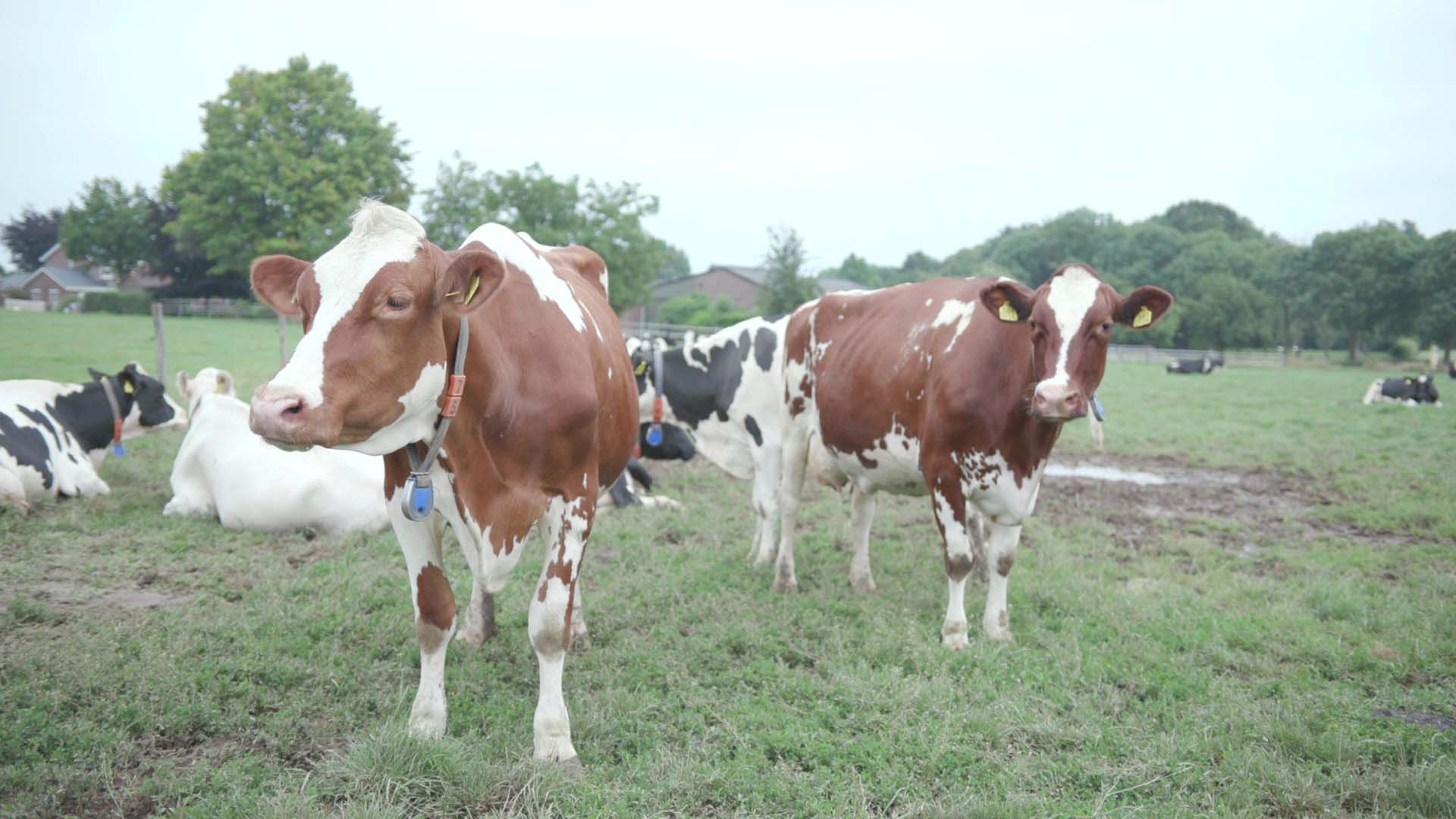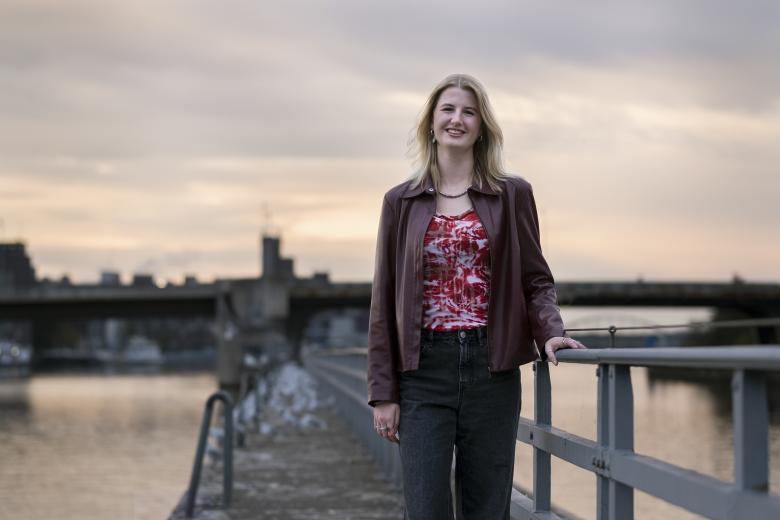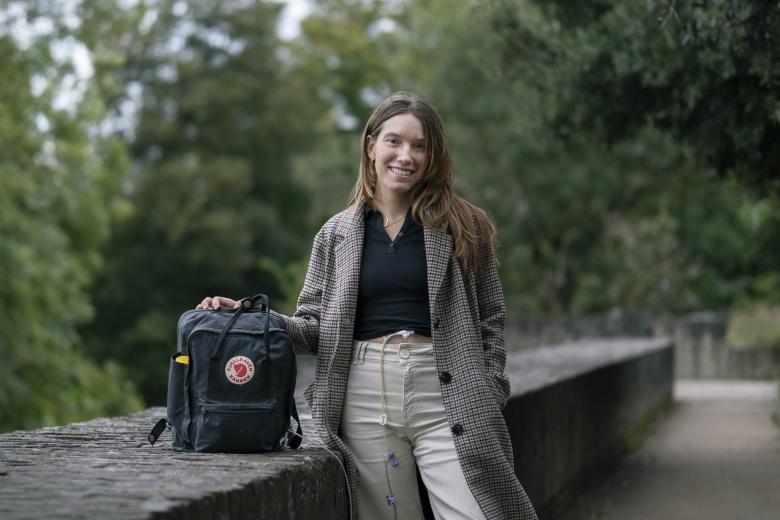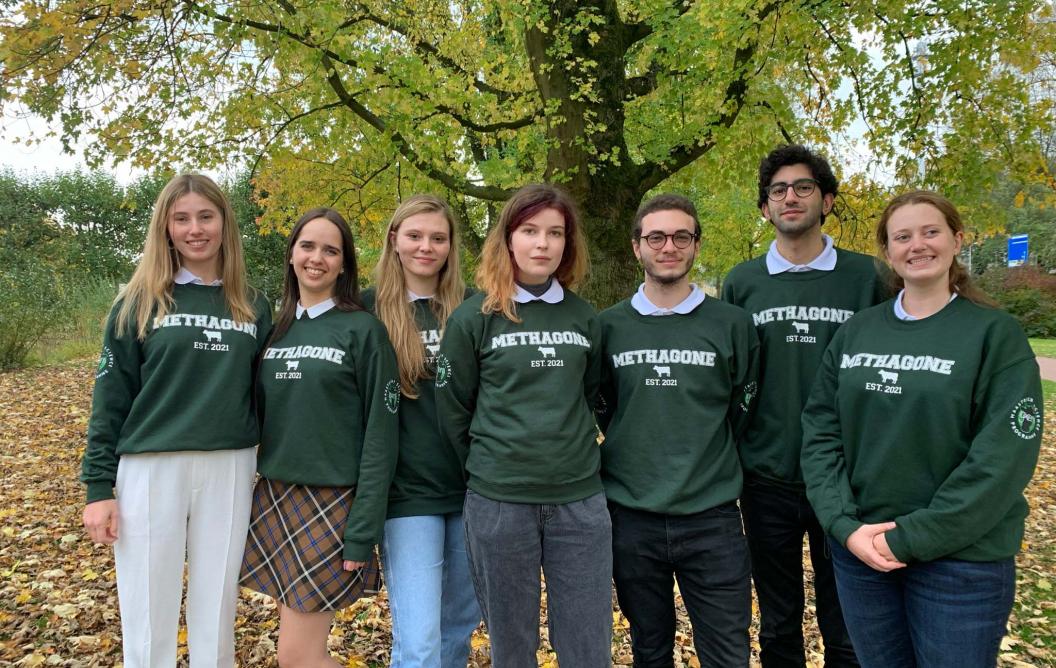Zilveren medaille in de prestigieuze iGEM-competitie rondom synthetische biologie
- deze informatie is alleen in het Engels beschikbaar -
For the second time in a row, a UM team has managed to win a silver medal in the prestigious iGEM (International Genetically Engineered Machine) competition in synthetic biology. The team, led by Dr. Erik Steen Redeker, consisted this year of 12 students from the Maastricht Science Programme and the master's programmes Systems Biology and Biomedical Sciences.
Synthetic biology is a relatively new field of research. It combines methods from different scientific disciplines and looks at biology from an engineering perspective. With the decreased costs and the growing ease with which we can read, write and 'print' DNA today, biological systems or even entire microorganisms can be reprogrammed, as it were, to create certain properties or perform specific tasks. Think, for example, of making medicines, optimizing food production, detecting disease markers in the blood, detecting or breaking down harmful substances in the environment or helping to solve the climate problem.
Molecules from seaweed
The latter was the goal of the UM iGEM team of 2021. With their project, MethaGone, the team used synthetic biology to find a solution to the problem of greenhouse gases, in particular methane emissions from cows. Although methane is emitted in smaller amounts worldwide than CO2, the potential to warm the planet is more than 20 times greater. So it's a serious issue that's gotten a lot of attention in recent months. In recent research, scientists have found that adding small amounts of a certain type of seaweed to cattle feed caused cows to produce about 80% less methane. However, it is difficult to grow large amounts of seaweed. Inspired by this research, the UM team designed an E. coli to have the same effect, by adding a selection of genes from the seaweed to the bacteria. These genes will give the bacteria the genetic instructions to produce certain molecules from the seaweed. These molecules are known to stop other microorganisms in the cow's rumen to produce methane.

Decreasing methane emissions
The idea here is that if this new E. coli is added to the animal feed, the methane emissions from the cows will decrease, just like when adding seaweed.
Over the course of about 8 months, the students not only designed and built the genetic instructions for the bacteria, but also raised money through crowdfunding to carry out the experiments, talked to farmers and politicians, made a documentary and a peer-reviewed iGEM journal. In addition, they designed and built a setup to simulate the rumen of a cow that will be tested in the coming months. The project was presented and defended at the (online) iGEM conference in November where it was awarded a silver medal. It is already the second year in a row that the UM team receives a silver medal in this competition.
Questions?
If you have any questions about this project, iGEM in general or if you are interested in being part of the next iGEM team, please send an email to erik.steenredeker@maastrichtuniversity.nl
Lees ook
-
Julia: “Als je dyslexie hebt, ben je niet minder slim. Je brein werkt gewoon anders.”
Sinds de middelbare school weet geneeskundestudent Julia Schepers dat ze dyslexie heeft. Toen ze 3 jaar geleden kwam studeren aan de UM, stapte ze al snel naar Disability Support om ondersteuning te vragen voor haar dyslexie.
-
Estella: “Als je studeert met een functiebeperking, heb je een andere realiteit. Ik vergelijk mezelf niet meer met anderen”
Studeren is voor psychologiestudent Estella Jardi Roca anders dan voor de meeste studenten. Door chronische ziektes moet ze regelmatig colleges missen vanwege ziekenhuisbezoeken en heeft ze meer rust nodig dan haar leeftijdsgenoten.
-
Studenten aan de slag in ENCI-groeve
Bewegende oranje stippen op een gele achtergrond zijn het eerste teken dat er iets bijzonders gebeurt in de wereldwijd beroemde kalksteengroeve in de Maastrichtse Sint-Pietersberg. Dichterbij zie je dat het om mensen gaat gekleed in oranje hesjes. Het zijn studenten van het Maastricht Science Programme...
